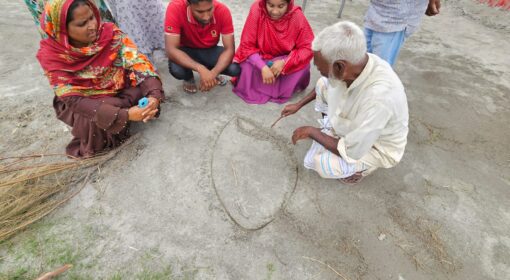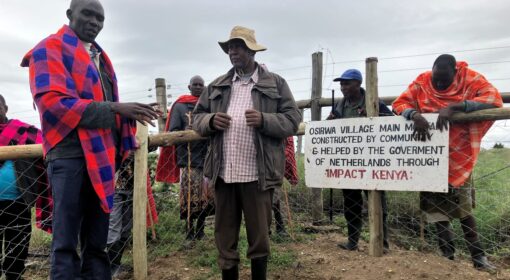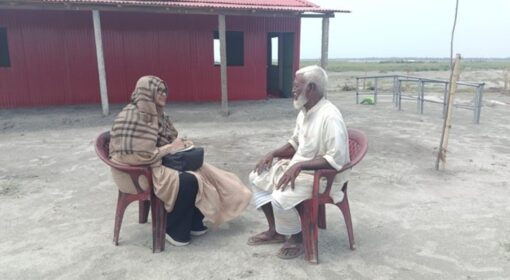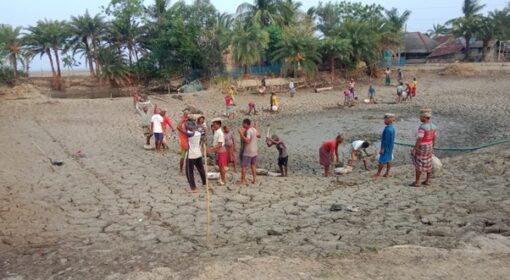By Shibly Sadik & Femke van Woesik
This blog is part of a dossier on locally-led adaptation, featuring insights and lessons from the Reversing the Flow (RtF) program. RtF empowers communities in Bangladesh, Burkina Faso, Ethiopia, Kenya, and Sudan to build climate resilience through direct funding and a community-driven, landscape approach.
Nestled in the vast Brahmaputra River lies the small island village of Gujimari, a place where the river’s whims often dictate life. Here, ‘community’ isn’t just a concept but a lifeline that binds the villagers in an exceptional bond of trust and mutual support.
Gujimari’s story challenges common assumptions about accountability in development. It shows how tightly knit social systems can create natural checks and balances that no external audit could replicate.
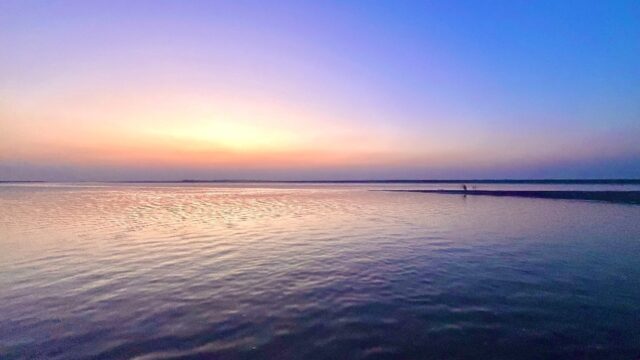
Despite varying income levels, the shared challenges of river erosion have united the villagers into a remarkably cohesive group. When time came to relocate to a new part of the island (a frequent necessity due to the shifting river), 157 families recently moved together. They did not just rebuild their homes; they thoughtfully left space for others who were still preparing to move. This act of foresight and solidarity shows their collective spirit.
During a visit, we met with a family living next to a newly raised platform, part of a project to mitigate flood risks. Their home, situated in a lower area, was at increased risk of flooding because of the construction. However, their concerns were alleviated by the community’s promise to collectively raise their house’s foundation through voluntary communal effort. This deep-seated trust ensures that no one is left vulnerable.
Gujimari is part of the RtF program and directly receives regrants through Friendship NGO. For many external actors, such approaches for community-led projects raise questions: Who manages the funds? How are decisions made? What prevents misuse?
Yet when visiting Gujimari, these concerns feel misplaced, and these questions feel almost redundant here. Transparency and accountability are not imposed from outside; they are woven into daily life.
Funds are managed by community members themselves, and labor comes from the same hands that benefit from it. With everything happening in the open, oversight is automatic. In such a small society, reputation is everything. Misusing resources would mean risking exclusion from the very network your survival depends on, a cost no one is willing to bear.
Conflicts are rare and resolved through negotiation until consensus is reached. Those reluctant to speak in public approach trusted committee members privately. This adaptability and trust make their system not only functional but deeply resilient.
As one villager put it, “Our social trust is our greatest capital. That’s what will help us start again when the river pushes us out.”
Gujimari reminds us that resilience is not something to be built from the outside in. It already exists in the trust and solidarity woven into daily life. For development actors, the lesson is clear: sometimes the most effective systems of accountability are not external audits or reporting frameworks, but the quiet, unspoken agreements that hold a community together.
In places like Gujimari, social trust is not just a value. It is a governance system, a safety net, and the foundation of collective resilience. Recognizing and supporting this can mean the difference between imposing solutions and enabling communities to thrive on their own terms.
